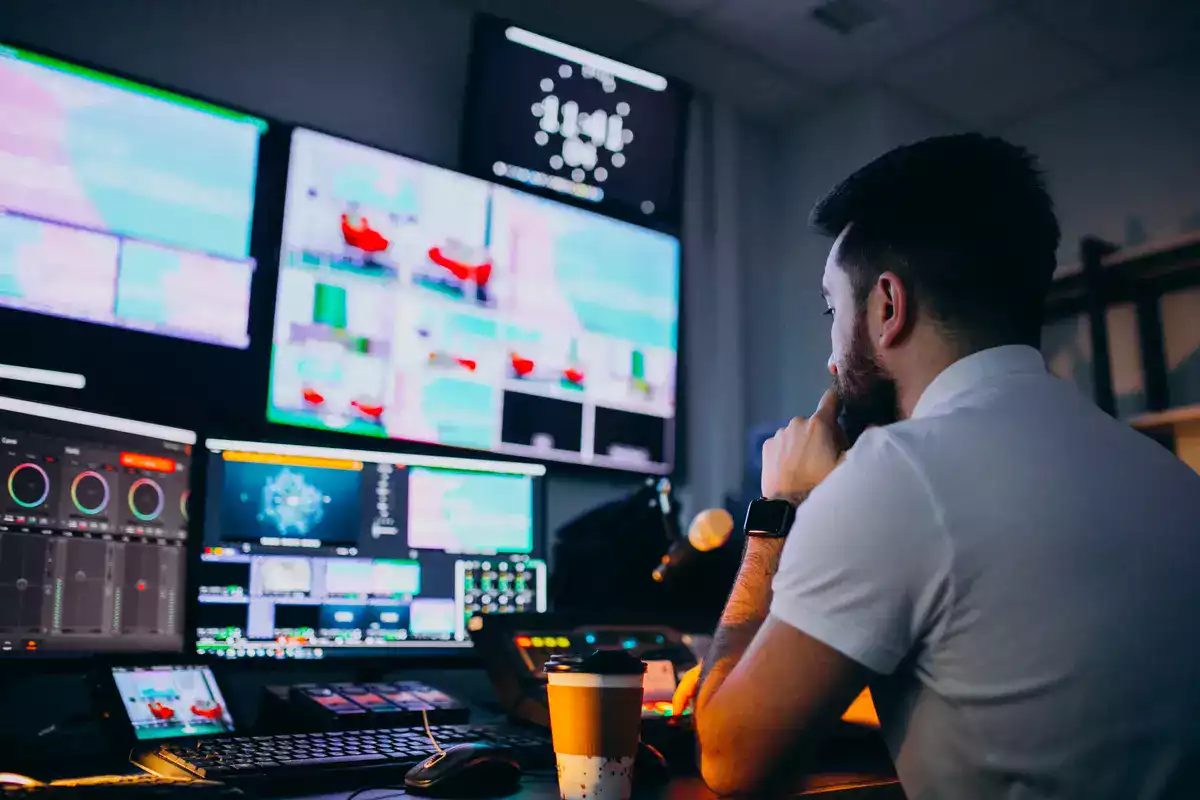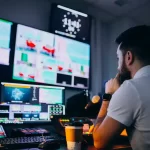Technology has always had a powerful influence on the way we create, consume, and experience entertainment. From black-and-white television sets to high-definition streaming and from arcade cabinets to immersive virtual reality (VR), the entertainment industry has undergone dramatic transformations. In today’s digital age, technological innovations are not just enhancing entertainment—they’re completely revolutionizing it.
Here’s a deep dive into how technology is reshaping the entertainment industry—across film, music, gaming, live events, and beyond.
🎬 1. Streaming Services Have Disrupted Traditional Media
Streaming technology has forever changed how audiences consume content. Platforms like Netflix, Disney+, Hulu, Amazon Prime Video, and Spotify have made on-demand access the norm. Consumers no longer have to wait for programming schedules or purchase physical media.
Key impacts:
- Global access: A film or song can now reach audiences worldwide instantly.
- Binge-watching culture: Entire seasons of shows released at once has changed viewer habits.
- Algorithm-driven personalization: AI suggests content based on your preferences, improving engagement.
Traditional cable and broadcast networks are struggling to keep up, while new content creators and indie artists now have platforms to directly distribute their work.
🎮 2. Gaming and Interactivity Are Leading Innovation
Gaming is no longer just a niche for hobbyists—it’s a global entertainment powerhouse, surpassing both the film and music industries in revenue. Thanks to technology, games have become hyper-realistic, socially interactive, and even mobile-first.
What’s changing:
- Cloud gaming (like Xbox Cloud Gaming and NVIDIA GeForce NOW) enables high-end gaming without expensive hardware.
- Cross-platform multiplayer has blurred the line between console, PC, and mobile gaming.
- Virtual and augmented reality (VR/AR) are creating immersive experiences (e.g., Meta Quest, PlayStation VR).
- AI-driven NPCs and real-time rendering create lifelike worlds and characters.
Gaming is also influencing other industries—with gamification now being used in education, marketing, and even healthcare.
🎵 3. Music Distribution and Creation Have Gone Digital
The music industry has been completely transformed by digital tools and platforms. From production to promotion and monetization, technology has made it easier than ever for artists to create and share their work.
Major trends:
- Streaming dominance: Platforms like Spotify, Apple Music, and YouTube have made physical sales almost obsolete.
- AI-generated music: Tools like Boomy and AIVA can now compose music using artificial intelligence.
- Direct-to-fan platforms: Artists can use Patreon, Bandcamp, and TikTok to monetize and grow their audience without a label.
- NFTs and blockchain: Musicians are exploring Web3 tools to sell exclusive content, concert tickets, or rights via blockchain.
This democratization has led to more artists getting discovered online than through traditional record deals.
🎥 4. Special Effects and Virtual Production Are Redefining Filmmaking
Filmmaking is evolving rapidly thanks to new tech in special effects, CGI, and virtual production. Big-budget movies now rely heavily on digital environments, green screen alternatives, and motion capture.
Game-changing innovations:
- LED volume stages (like those used in The Mandalorian) allow actors to perform in virtual environments in real-time, cutting costs and increasing realism.
- AI-enhanced editing speeds up post-production by automating tasks like color correction, video tagging, and even script writing.
- 3D scanning and facial recognition are being used to digitally de-age actors or create realistic avatars.
This technology makes blockbuster visuals more accessible to indie creators and lowers barriers to entry.
📱 5. Social Media and Content Creation Are Dominating Engagement
Platforms like TikTok, Instagram Reels, and YouTube Shorts are not just entertainment hubs—they’ve become essential parts of modern pop culture. The rise of influencers, content creators, and live streamers has shifted where and how audiences spend their time.
Key developments:
- Short-form content is now the most consumed type of media globally.
- Live streaming (on Twitch, YouTube, Facebook Gaming) has opened the door to real-time engagement between creators and fans.
- User-generated content (UGC) is driving trends and often more influential than traditional advertising.
Even major brands and studios are now producing social-first content and working with creators to promote their projects.
🎭 6. Immersive Experiences Are the New Frontier
Technology is blurring the lines between digital and physical entertainment. From virtual concerts to mixed-reality theme parks, entertainment is becoming more experiential than ever.
Examples of immersive tech:
- Virtual concerts in platforms like Fortnite (Travis Scott’s concert drew 12 million viewers) or Roblox.
- Augmented reality (AR) for live shows, art exhibits, and mobile gaming (like Pokémon GO).
- Hologram performances from artists like Tupac and Whitney Houston.
Immersion is not just a buzzword—it’s the future of how audiences will “feel” content instead of just watching or hearing it.
🧠 7. Artificial Intelligence and Data Are Powering Creativity
AI isn’t just helping with backend analytics—it’s now a part of the creative process. Writers, musicians, editors, and marketers are using AI tools to enhance their work or automate repetitive tasks.
AI applications in entertainment:
- Scriptwriting assistants like ChatGPT or SudoWrite
- AI voice dubbing and translations for international distribution
- Audience behavior analytics to predict trends and optimize release schedules
- Deepfake and voice synthesis for digital actors and multilingual adaptations
While controversial, AI is proving to be a powerful collaborator in the creative ecosystem.
🎟️ 8. Ticketing, Monetization & Fan Engagement Go Digital
Technology has revolutionized the business side of entertainment too. Gone are the days of paper tickets and cash-only concerts. Now everything from ticketing to merchandising to crowdfunding happens digitally.
Big shifts:
- Blockchain-based ticketing to reduce fraud and scalping
- Dynamic pricing algorithms to optimize seat prices in real time
- Fan monetization through platforms like OnlyFans, Cameo, and Ko-fi
- Interactive voting and engagement in reality shows and livestreams
Technology ensures that artists and producers have more direct control and better revenue streams.
🔮 What’s Next? The Future of Entertainment Tech
The entertainment industry is far from done evolving. Here are some emerging trends to watch:
- Metaverse entertainment: Entire concerts, movies, and games taking place in shared virtual worlds.
- Hyper-personalized content: Using AI to generate movies or music tailored to your preferences in real-time.
- Haptic feedback suits and immersive hardware to feel what you’re watching or playing.
- AI-generated actors and influencers: Some are already gaining followers (like Lil Miquela).
💡 Final Thoughts
Technology has forever changed the entertainment industry, opening up possibilities for creators and consumers alike. It’s democratized access, expanded global reach, enhanced interactivity, and redefined what it means to be entertained. Whether you’re a filmmaker, gamer, artist, or just a fan—you’re part of this digital transformation.
As we move into a world of virtual concerts, AI-generated scripts, and immersive metaverses, one thing is clear: the future of entertainment isn’t just digital—it’s limitless.
Want more on entertainment, tech, and business trends?
Visit TalkLert for smart insights, expert tips, and the latest updates from the world of innovation.









Leave a Reply